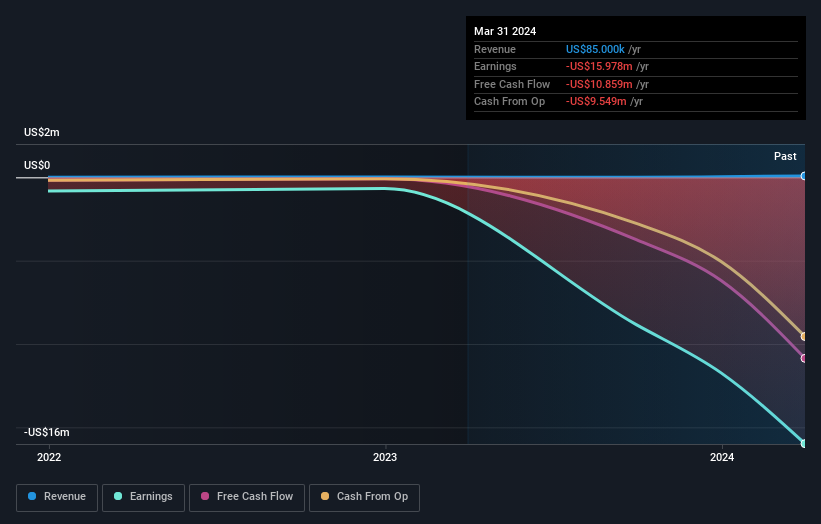Brand Engagement Network, Inc.'s (NASDAQ:BNAI) most bullish insider, Senior Key Executive Tyler Luck must be pleased with the recent 25% gain
Key Insights
Brand Engagement Network's significant insider ownership suggests inherent interests in company's expansion
The top 3 shareholders own 57% of the company
Past performance of a company along with ownership data serve to give a strong idea about prospects for a business
Every investor in Brand Engagement Network, Inc. (NASDAQ:BNAI) should be aware of the most powerful shareholder groups. We can see that individual insiders own the lion's share in the company with 36% ownership. That is, the group stands to benefit the most if the stock rises (or lose the most if there is a downturn).
As a result, insiders were the biggest beneficiaries of last week’s 25% gain.
In the chart below, we zoom in on the different ownership groups of Brand Engagement Network.
View our latest analysis for Brand Engagement Network
What Does The Institutional Ownership Tell Us About Brand Engagement Network?
Institutional investors commonly compare their own returns to the returns of a commonly followed index. So they generally do consider buying larger companies that are included in the relevant benchmark index.
As you can see, institutional investors have a fair amount of stake in Brand Engagement Network. This suggests some credibility amongst professional investors. But we can't rely on that fact alone since institutions make bad investments sometimes, just like everyone does. It is not uncommon to see a big share price drop if two large institutional investors try to sell out of a stock at the same time. So it is worth checking the past earnings trajectory of Brand Engagement Network, (below). Of course, keep in mind that there are other factors to consider, too.
Hedge funds don't have many shares in Brand Engagement Network. From our data, we infer that the largest shareholder is Tyler Luck (who also holds the title of Senior Key Executive) with 26% of shares outstanding. Its usually considered a good sign when insiders own a significant number of shares in the company, and in this case, we're glad to see a company insider play the role of a key stakeholder. In comparison, the second and third largest shareholders hold about 18% and 13% of the stock.
After doing some more digging, we found that the top 3 shareholders collectively control more than half of the company's shares, implying that they have considerable power to influence the company's decisions.
While it makes sense to study institutional ownership data for a company, it also makes sense to study analyst sentiments to know which way the wind is blowing. Our information suggests that there isn't any analyst coverage of the stock, so it is probably little known.
Insider Ownership Of Brand Engagement Network
While the precise definition of an insider can be subjective, almost everyone considers board members to be insiders. Management ultimately answers to the board. However, it is not uncommon for managers to be executive board members, especially if they are a founder or the CEO.
Insider ownership is positive when it signals leadership are thinking like the true owners of the company. However, high insider ownership can also give immense power to a small group within the company. This can be negative in some circumstances.
Our information suggests that insiders maintain a significant holding in Brand Engagement Network, Inc.. It has a market capitalization of just US$138m, and insiders have US$49m worth of shares in their own names. It is great to see insiders so invested in the business. It might be worth checking if those insiders have been buying recently.
General Public Ownership
The general public-- including retail investors -- own 24% stake in the company, and hence can't easily be ignored. This size of ownership, while considerable, may not be enough to change company policy if the decision is not in sync with other large shareholders.
Private Company Ownership
Our data indicates that Private Companies hold 31%, of the company's shares. It's hard to draw any conclusions from this fact alone, so its worth looking into who owns those private companies. Sometimes insiders or other related parties have an interest in shares in a public company through a separate private company.
Next Steps:
I find it very interesting to look at who exactly owns a company. But to truly gain insight, we need to consider other information, too. For instance, we've identified 2 warning signs for Brand Engagement Network that you should be aware of.
Of course this may not be the best stock to buy. Therefore, you may wish to see our free collection of interesting prospects boasting favorable financials.
NB: Figures in this article are calculated using data from the last twelve months, which refer to the 12-month period ending on the last date of the month the financial statement is dated. This may not be consistent with full year annual report figures.
Have feedback on this article? Concerned about the content? Get in touch with us directly. Alternatively, email editorial-team (at) simplywallst.com.
This article by Simply Wall St is general in nature. We provide commentary based on historical data and analyst forecasts only using an unbiased methodology and our articles are not intended to be financial advice. It does not constitute a recommendation to buy or sell any stock, and does not take account of your objectives, or your financial situation. We aim to bring you long-term focused analysis driven by fundamental data. Note that our analysis may not factor in the latest price-sensitive company announcements or qualitative material. Simply Wall St has no position in any stocks mentioned.

 Yahoo Finance
Yahoo Finance 

